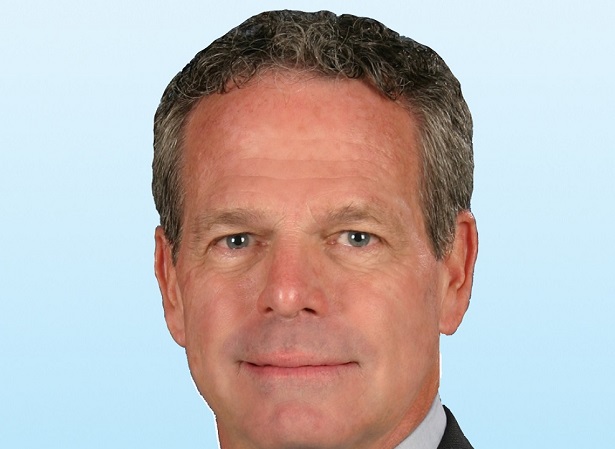The hotel industry is one of the nation's hardest-hit sectors in the sudden economic downturn from COVID-19. Hotel economists are predicting hotel occupancy levels to fall below 50% for the year, and convention and theme park locations like Orlando and Las Vegas will probably be impacted even more.
At previous pricing levels, hotel occupancy above 60% typically indicated break-even. But with the recent dramatic reductions in room rates, occupancy well above 70% would likely be needed for a hotel to break even right now. And with staff being a hotel's costliest operating expense, massive layoffs have been no surprise.
Meanwhile, in many Florida cities, the number of new hotels in the pipeline is the highest on record. The South Florida tri-county area has 154 new hotels in the pipeline, Orlando has 99 and the Tampa Bay area has 47. Typically, about 85% of such projects come to fruition, but obviously, it can be expected that many projects now in the planning stages will be delayed or shelved completely.
So what does this all mean for hoteliers, particularly those in Florida? Here are some thoughts:
Compared to many states, hotels in Florida can be expected to bounce back relatively quickly.
Except for a brief period after 9/11, the US hotel industry has never experienced a dramatic cessation of business like the one caused by COVID-19, but Florida has.
Because of devastating hurricanes, Florida hoteliers have experience in navigating massive drops in demand and extended recovery periods. Many hoteliers in the state know where to find aid and how to get cooperation from their insurers, lenders and even apply to the SBA for disaster loan assistance. Simply put, COVID-19 more closely resembles a natural disaster than a major economic downturn, and Florida hoteliers are better prepared than most to deal with it.
Lenders on new hotel projects have pushed the pause button, while hotel owners scramble to modify existing loans.
A month ago, a bridge loan could be secured with 75 to 80% loan to value. Today, if a loan is even still available, it would probably be made at 45 to 50% loan to value. Meanwhile, many hotel owners are aggressively seeking modifications to their loans, with some success.
As an example, a regional lender recently granted a three-month deferral of principal and interest payments for a hotel owner. Also, the loan agreement called for a debt-service coverage ratio of 1.35, but the lender waived the requirement for the first and second quarters of this year and reduced it to 1.0 for the third and fourth quarters. (This ratio is calculated by taking the funds available from operations for debt service and dividing that figure by the loan amount due.)
Look for lenders to be more flexible with loan workouts this time around vs. 2008.
Commercial real estate lenders who were around in the 2008-2010 downturn remember the hassles and challenges involved with taking over a hotel. In some cases, a special servicer would take over a hotel, only to get a surprise call a week later asking for thousands of dollars to cover payroll. So it makes sense that lenders would want to avoid that scenario again if they can.
CMBS loans identify a Master Servicer and a Special Servicer. The Master Servicer collects monthly payments and handles routine matters. But when a loan is troubled, it is transferred to the Special Servicer, which could take control of cash flows, and ultimately could foreclose on the hotel or negotiate modifications to the loan. Historically, being transferred to the Special Servicer was dreaded by hotel owners. But today, many owners are requesting to be transferred to the Special Servicer, hoping to negotiate loan modifications.
Not surprisingly, hotel sales transactions have been put on pause.
Both buyers and sellers are taking a "wait and see" position, with sales deals being put on ice. At the same time, in a downturn there's always opportunity. Rescue funds are being put in place – including many being organized through private family offices – in anticipation that many hotel owners will be forced to sell or be forced to take in an equity partner at a discounted price.
With this combination of motivated sellers and opportunistic buyers, expect to see an active sales environment for hotels after the crisis subsides.
The COVID-19 crisis will have a lasting impact on how hotels do business.
Before the COVID-19 crisis, many hotel chains had already been moving aggressively toward less direct customer contact, primarily for customer convenience.
The number of reservations made via cell phone apps has risen dramatically, and companies like Hilton and Marriott are rapidly incorporating keyless guestroom entry. These same apps will also soon allow guests to control room thermostats and the TV. This, in turn, will eliminate the need for guests to touch remote controls, thermostats or room telephones.
We can also expect to see a dramatic change in the "free breakfast." For many hotels, what started as an English muffin and a glass of juice has expanded to self-serve areas with waffles, pancakes and omelets. But during the crisis, many hotels have changed to "grab and go" items, with the race for the biggest and best breakfast put on pause.
Finally, leisure travel can be expected to rebound, with the possible exception of theme parks, where ongoing social distancing will be challenging. The COVID-19 crisis may lead to significantly lower levels of business travel going forward, as more companies get comfortable with the concept of video conferencing.
These changes to the hotel industry will be profound and far-reaching, leading to major changes in demand and a new set of customer expectations. Hotel owners will need to understand their customers, be nimble, and get creative to thrive in what we can expect to be a new normal.
Kent Schwarz is executive managing director of Colliers International. His work spans the country, with a particular focus on the Florida hotel industry.
© 2025 ALM Global, LLC, All Rights Reserved. Request academic re-use from www.copyright.com. All other uses, submit a request to [email protected]. For more information visit Asset & Logo Licensing.








